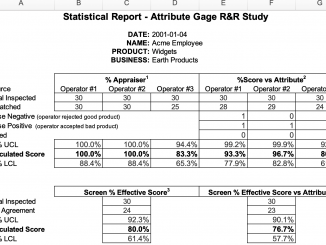There is no Warranty Period Conspiracy!
As I explain, “When engineers design consumer grade products the goal is to design the lowest cost product that will far exceed the normal expected functional lifetime of the product.” This indeed is the best marketing wouldn’t you think? A product that has a 12 month warranty that works as expected 8 years later (but maybe stored in the garage) says something about a brand.
I further explain that the first major hurdle in any design and probably just as important as ensuring the lowest cost and longest functional lifetime is to design a product that will not fail during the break-in period of the product or first number of days. The number of days here can be as little as a week or up to about three months. Product failures that occur very early in their lifecycle (or warranty period) are called break-in period failures or infant mortality failures. Much has been written about this elsewhere regarding hard drives, computers, and the automotive industry. These failures usually don’t occur in the same way as in critical systems such as avionics system or the aviation industry, medical equipment, and military system as these are product industries strong in regulation that ensures robust preventive maintenance plans.
To further demonstrate the effect of early product failures against normal use failures and eventually to the end of their normal use period, usually referred to by reliability engineers as the wear-out period, I refer you to the bathtub curve.
Thanks for reading.
Reprinted with permission from sixsigmaz.com
EDITOR\’S NOTE
While this post was based largely on refrigerator reliability, it goes so far to say that the concepts covered may apply to mobile device such as iPhones, Samsung, or other wide scale, high-velocity manufacturing, non-mechanical part, commodity products. Could someone propose a warranty model regarding the “broken glass” phenomenon (eliminating the early-failures from consumers dropping their phones too soon and too excitedly)?



Be the first to comment